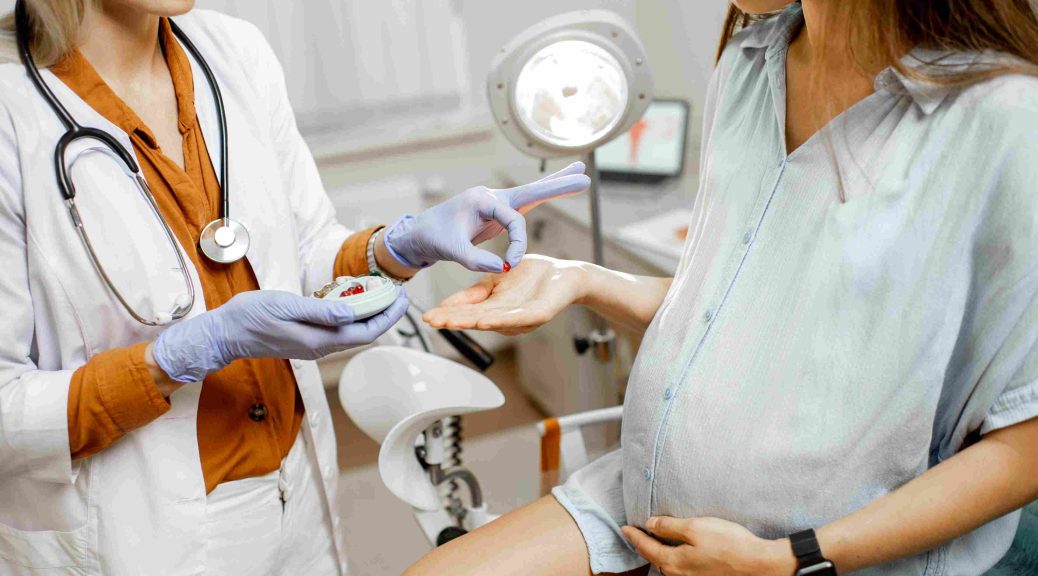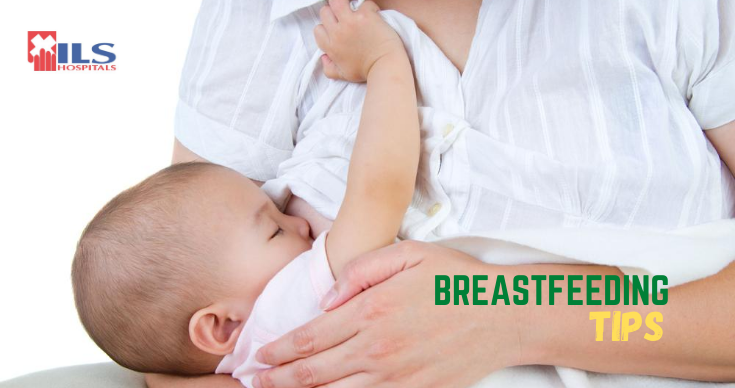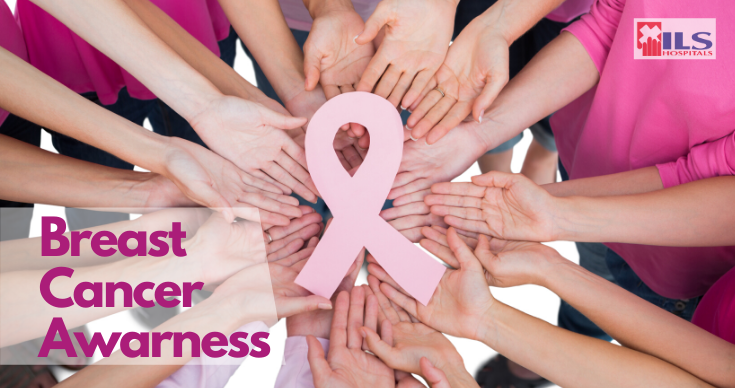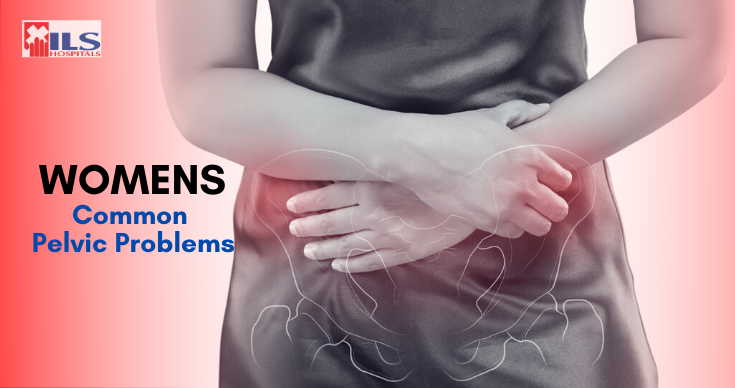When You Should Consult a Gynecologist?
Women’s health is a paramount aspect of overall well-being that needs careful attention and proactive care. Consulting a gynecologist plays a huge role in addressing women’s health, ensuring preventive care, and managing reproductive health needs.
Now it is to be kept sure that if you are facing any kind of gynecological issue then without any delay you must make an appointment at the gynecology hospital in Kolkata.
In this healthcare guide, we will delve into various scenarios in which consulting a gynecologist is necessary, highlighting the importance of regular check-ups and personalized care.
Understanding The Role Of Gynecologists
A gynecologist is a medical professional who has expertise in women’s reproductive health. They possess expertise in diagnosing and treating a wide range of conditions related to the female reproductive system.
These problems include menstrual disorders, fertility issues, pregnancy, and childbirth.
Moreover, gynecologists play an important role in providing preventive care, counseling on contraception, and family planning. This requires detailed gynecological concerns throughout different stages of life.
When To Consult A Gynecologist
-
Annual Well-Woman Exam
Scheduling an annual well-woman exam with a gynecologist is vital for women of all ages.
During this comprehensive check-up, the gynecologist conducts a pelvic exam, and breast exam, and discusses any health concerns or symptoms the patient might have.
All of these routine exams help to detect gynecological conditions early, promote preventive care, and ensure overall health.
-
Menstrual Irregularities
Women who are experiencing menstrual irregularities such as heavy bleeding, missed periods, or severe menstrual cramps, must consult a gynecologist.
These symptoms might include underlying hormonal imbalances, polycystic ovary syndrome, endometriosis, or other gynecological disorders that require evaluation and proper treatment.
-
Contraception Counseling
Seeking proper guidance from gynecologists regarding contraception options and family planning is very important for women seeking to prevent unwanted pregnancies.
A gynecologist can provide information about various methods of contraception, including birth control pills, intrauterine devices, implants, and barrier methods.
It helps individuals to make informed decisions based on their health and preferences.
-
Fertility Concerns
Couples experiencing difficulty in conceiving or planning to start a family must consult a gynecologist specialized in reproductive medicine and infertility.
A gynecologist can conduct fertility evaluations, recommend diagnostic tests, and develop personalized treatment plans to address underlying fertility issues.
Undergoing an infertility treatment will be very crucial if someone is looking for infertility treatment in Howrah.
-
Pregnancy Care
Pregnant women need specialized pre-natal care to ensure a healthy pregnancy and delivery.
Regarding emergency cases, you can contact 24*7 emergency hospitals in Howrah.
Consulting a gynecologist early in pregnancy allows for proper prenatal screening, monitoring of fetal development, and management of pregnancy-related complications.
Regular prenatal visit also provides an opportunity to recognize maternal health concerns and preparation for childbirth.
-
Menopausal Symptoms
Women experiencing menopausal symptoms such as hot flashes, night sweats, mood changes, or vaginal dryness must seek guidance from a gynecologist.
Seek expert guidance if you are having menopausal symptoms to prevent the issues in the best gynae hospitals in Howrah.
A gynecologist can offer hormonal and non-hormonal treatment options to alleviate menopausal symptoms and improve quality of life during this transitional phase.
-
Pelvic Pain Or Discomfort
Persistent pelvic pain during intercourse or urinary symptoms warrants consultation with a gynecologist.
These symptoms may indicate underlying gynecological conditions such as pelvic inflammatory disease, ovarian cysts, fibroids, or infections that require evaluation and management.
Reason For Consulting A Gynecologist
Making a consultation with a gynecologist is very important for maintaining the health of a woman, and addressing specific concerns related to reproductive health.
It also helps to contribute to the overall well-being of a woman.
Gynecologists not only diagnose and treat gynecological conditions but also provide preventive care, education, and support to empower women to manage their health.
Moreover, regarding medical tests and treatments, gynecologists offer counseling on topics such as sexual health, contraception, menstrual hygiene, and menopausal management.
By establishing a trusted relationship with a gynecologist, women can access personalized care and care.
Wrapping It Up
You must make an appointment with the best gynae doctors as they will help you to assess your health, by providing prescriptions for good management of your health.
However, recognizing the importance of regular check-ups, seeking timely guidance, and prioritizing preventive care, a woman can understand the steps to take care of their health.
Let us embrace the proactive approach to women’s health by making a consultation with a gynecologist in ILS Kolkata, to prioritize a happy future.
Faqs(Frequently Asked Questions):-
Here we have explained some of the frequently asked questions regarding women’s gynecological health and its consequences:
- At what age should you start Consulting a Gynecologist?
Is it generally suggested that young women have their first gynecological visit between the ages of 13 and 15, or when they become active sexually. However individual situations might vary, and some may need to see a gynecologist due to health conditions.
- How often should you schedule a visit to the Gynecologist?
The frequency of gynecological visits depends on various factors including age, health, and risk factors. For many women, an annual exam is recommended to monitor their reproductive health.
- What should you Expect during a Gynecological Exam?
During a gynecological exam, the doctor typically conducts a pelvic exam to assess the health of the reproductive organs. They may also screen for cervical cancer and a breast examination to check for lumps.
- What Topics can you discuss with a Gynecologist?
You can discuss a wide range of topics with your gynecologist, including menstrual health, contraception options, fertility concerns, pregnancy planning, sexually transmitted infections (STIs), menopause symptoms, pelvic pain, sexual health, and reproductive concerns.
What Age Can I See A Gynaecologist?
Gynecologists are trained medical professionals in the field of female reproductive health. To be precise, if you are a woman or someone with female reproductive organs and anywhere between 14 to 45 years old, you can visit a gynecologist hospital in Kolkata. The visit can be a part of a regular check-up that one should do or some symptoms you have been experiencing.
Read on if you wonder why a visit to the gynecologist is considered critical for your health and what they can help you with.
What Age Is The Right Age To See A Gynaecologist?
There is no right age to visit a gynecologist. Once you turn 20, it is advised that you visit your doctor every year for a regular exam, which would generally be a pap smear and a pelvic examination. However, if you were sexually active before you turned 20, you should also make a yearly visit to the gynecologist.
If you are pregnant, regular check-ups are needed to confirm the pregnancy and determine what diet to maintain, what exercises to do, precautions to take, medicines and prenatal vitamins to take, and so on.
When To See A Gynaecologist For Other Symptoms?
1 – Irregular Period
Irregular periods can happen due to a plethora of reasons like stress, poor diet, PCOS, anorexia, and hyperthyroidism. It’s always recommended to seek consultation from a gynecologist when you are facing irregular periods. Whatever be the cause of it, a doctor can chalk out a treatment plan which could include recommending medications and certain lifestyle changes that can help regularise your periods.
2 – STD Testing
If you have had sexual intercourse lately without protection with a non-exclusive partner, you should get yourself tested for STD as soon as possible. A good gynecologist hospital in Kolkata will ask for your symptoms, take your blood or urine sample, and if you are tested positive, provide you with medications to treat and manage the same. Please note that not all STDs show symptoms; hence if you are in doubt the best course of action would be to visit your doctor.
3 – Gain In Weight
If you have gained weight recently without any change in diet or physical activity, it could be a hormonal imbalance. PCOS is the leading cause of weight gain in women, and even though there is no treatment for it, managing PCOS can help treat symptoms associated with it, primarily weight gain.
4 – Painful Periods
A little discomfort or cramps during periods is normal, but when it becomes too severe to handle, it’s time to schedule an appointment with your gynecologist. The pain could be due to forming of ovarian cysts, fibroids, or endometriosis, which is the building up of extra tissues in your uterus. The above conditions require immediate medical attention, which a trained and experienced gynecologist could only provide.
Conclusion
It’s usually recommended that you start visiting a gynecologist annually once you turn 20. While choosing a gynecology hospital in Kolkata, make sure that the doctor has relevant experience, is open-minded, answers all your questions, and does not make you feel awkward about your sexual history or for any other reason. If you search for the best gynecologist hospital in Kolkata, then https://www.ilshospitals.com/ is the name you can trust!
Gynaecologists & Obstetrics FAQs On COVID-19
Providing continuous patient care should be the responsibility of all health care professionals irrespective of the condition. This pandemic has hit everyone with uncertainty.
Whether it is a pandemic or endemic or epidemic or sporadic disease, prioritising pregnant mothers, vulnerable groups, children, aged people, immunocompromised people, and people with immediate needs is our utmost responsibility.
When it comes to pregnant mothers, they raise a lot of questions during their visits. Even nonpregnant mothers come up with their doubts.
These FAQs are formulated by experts of the College of Obstetricians and Gynaecologists (ACOG) and are based on their opinions. These questions will provide information on how to improve maternal health and deal with their associated issues in the context of COVID-19.
You can keep your eyes on this article to unearth some important issues dealing with perinatal mothers and coronavirus. To face your dilemmas, consult with any gynaecologist specialist in Kolkata.
- If An Obstetrics Practitioner Tested Positive, When Can She Return To Work?
Once the Practitioner meets the CDC criteria, she can return to her workplace. Some of the typical guidelines are outlined below:
- 10 days isolation is compulsory (since the symptoms appear for the first time)
- Once cough, fever, shortness of breath, and other associated symptoms stop progressing
- For severely immunocompromised patients, isolation is extended up to 20 days
- If the mother continues to have a residual non-productive cough for the next few days, then it’s better to drop the idea to rejoin work.
When the mother returns to her workplace, wearing a high-efficiency particulate air filter (HEPA) or N95 Respirator is compulsory, self-monitoring for any signs or symptoms, and seeking evaluation whenever necessary. You can visit Obstetrics Practitioners & any gynaecology doctor in Kolkata for checkup as they are completely safe to visit during this pandemic.
- What Personal Protective Equipment (PPE) should an obstetric practitioner wear?
Personal Protective Equipment is meant to protect a practitioner when she comes in contact with any suspected or confirmed cases. Usually, both doses of vaccines can’t prevent the disease fully. So, maintaining an optimum distance and following all the COVID appropriate behaviour should be encouraged.
Gynaecology doctors in Kolkata take each & every precautionary measure during any pregnant patient visiting them.
- What Is The Best Way To Disinfect The Ultrasound Equipment?
The protocols of reusing an ultrasound machine in the operation theatre and a normal scenario are almost identical. In both scenarios, low-level disinfection is done. The only difference in operation theatre is the strict maintenance of the aseptic technique while using the USG machine.
- What Is The Effect Of COVID-19 On Foetus And Neonate?
A pregnant mother can’t pass the virus to her foetus or baby. Till now, no such cases have been confirmed. But if you come in contact with any suspect cases, you should visit a gynaecologist specialist in Kolkata.
- What Screening Tests Should Be Performed In The Antenatal Period?
Vaccination status should be analysed on a priority basis. According to the World Health Organization (WHO), a pregnant mother should visit every month.
- Is The Timing Of Delivery Affected By COVID-19?
Long story short, the estimated date (ED) of delivery is not affected by COVID-19.
Wrapping Up
We hope these questions help you. Consult any gynaecologist specialists in Kolkata if you struggle with your dilemmas. https://www.ilshospitals.com/ has got some of the finest gynaecology doctors in Kolkata; you can visit and book an appointment with them for further understanding.
All About Blood Groups and Immune System
Blood groups affect our immunity directly. Different blood groups are responsible for antibody generation in our bodies in response to viruses, bacteria, and other intruders.
When antigens present in the blood come in contact with an unknown substance, they signal the immune system to take the needful measures against such components. Blood is broadly classified into 8 types, and you must know your blood group before undergoing any medical procedure.
Understand how your blood type is related to the health and immunity system and how likely your body will acquire various diseases based on your specific blood group.

Cancer
It is observed that blood group A is more likely to develop stomach cancer among all blood groups. The ABO gene also plays a significant role in heightening cancers of the lungs, breast, liver, etc. If you have an A blood group, it’s wise to get yourself thoroughly checked for these cancers.
Stress
If you have a blood group A, stress might be a common and frequent issue for you. As individuals with such blood type have more release of cortisol and stress hormones in their body, they might find it very tough to deal with anxiety.
Heart Diseases
A specific type of gene called an ABO gene can put you at a greater heart disease risk. This threat multiplies further if you live in an area where pollution levels are high. If you belong to the blood group- A, B, or AB, chances of coronary heart diseases are elevated for you. Get yourself thoroughly checked before any mishap.
Pregnancy Complications
Many people don’t know about the rhesus factor (Rh) and its fatal consequences in unfavourable contact with substances. If a pregnant woman’s rhesus factor does not match that of the child’s, the mother’s immune system might recognise the child as an allergy and start making antibodies against it. Further, this can lead to dangerous outcomes for both the mother and the baby.
If you are pregnant and are looking forward to a healthy and easy delivery of the baby, I would advise you to visit a gynaecologist hospital as soon as possible. If you live in a rural area, try contacting some well-known gynaecology hospital in Kolkata, Mumbai, Delhi, etc. These hospitals will have the best medical facilities and services and will be able to cater to all your needs.
Brain Functioning
The ABO gene can also lead to low brain functioning and memory loss and cognition problems. As the O blood group doesn’t have this gene, people with this particular blood type are free from such illnesses. Study shows that individuals having blood group, A, B, and AB, are more likely to develop memory and brain-related problems than those having O blood group.

Malaria
People with blood group O are less prone to get infected with malaria, as the parasite causing this illness doesn’t get easily attached to blood cells of O type.
You need to know your blood type before entering into a medical procedure. Your immune system might not receive certain kinds of treatments positively, and the incompatibility could be fatal. As this problem is common in blood transfusions and pregnancy, you would want to get thoroughly checked beforehand. Dredge out the best gynaecology clinic, gynaecologist hospital near you, or visit sites like www.ilshospitals.com to contact the most reputed gynaecology hospital in Kolkata and nearby cities.
Maternity and Child Birth During COVID-19
With the onset of the pandemic and the ongoing measures, life drastically changed for millions across the country. Each person has started to take more precautions and focuses on hygiene as one of their top-most priorities. However, in certain cases, it is not just a priority but a necessity to maintain proper hygiene at all times. Older people, people with respiratory problems and pregnant mothers have to be extra cautious and those around them have to be careful. Hospitals, multi-specialty clinics and gynaecologists in Kolkata have taken all the precautions to ensure great mother & child care.
Prenatal management and fetal safety are gaining interest as the virus and community spread is becoming increasingly common. Expecting mothers always have to be prepared and with the pandemic, they have to ensure they take extra precautions for their own safety and the safety of their child.
Here are certain points that an expecting mother or a new mother should keep in mind during these trying times:
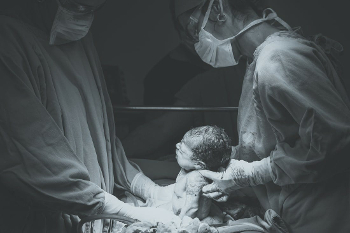

- Precautions: Like every other person, expectant mothers and mothers who have recently given birth should practice social distancing and maintain proper hygiene by wearing a mask and frequent washing of hands. They should avoid touching their face and seek medical advice in case of cough, fever or other symptoms.
- High Quality Care: High quality care is essential before, after or during the birth of the child for women who are expecting. Pregnant women are often predisposed to viral respiratory infections due to the physiological changes which can increase the threat of COVID-19 for them. However, the survival rate is the same as that for non-pregnant women
- Seek Medical Advice: Despite maintaining precautions, the expectant mothers should be constant touch and under the monitoring of professionals occasionally. Since the symptoms of COVID-19 can overlap with the side effects of pregnancy, it is advisable to seek medical help and opt for regular check-ups.
- Virtual Assistance: Due to the uncertain times, it is possible that there might be delays in regular appointments to practice social distance as well as transition of certain appointments to virtual, keeping in mind the safety of the baby. Embrace the idea of teleconsultations as doctors are keen on cutting down unnecessary visits.
- Transmission to Baby: As per studies, until now there has been no indication of transmission of COVID-19 from the mother to the unborn child. After birth, the mother should be encouraged to breastfeed the child and have skin to skin contact even if she is positive. Make sure to seek medical advice for your infant’s health.
As the pandemic continues to take a toll on the world, it is essential to take precautions and maintain the safety of those at risk. Pregnant mothers and newborn babies are at higher risk of conducting the virus. At ILS Hospitals, we are taking special care and extra precautions for prenatal and fetal treatment. To ensure a safe and sound pregnancy and healthy birth, opt for one of the best and multi-specialty hospitals in Kolkata.
Visit https://www.ilshospitals.com to know more, or Call us at ILS Care – + 91 9051460000.
“Your Health, Our Happiness!”

Covid -19: How To Breastfeed Your Baby If You’re Covid Positive
COVID-19 cases are increasing drastically and the vaccine is still not available to the masses. If you’re a COVID positive new mother then you have to take as many precautions as you can because you have to breastfeed your newborn baby.
(Get in touch with the best gynaecologist in Kolkata for clearing queries related to gynaecological health.)
According to WHO (World Health Organization), mothers can breastfeed their babies even if they have tested positive for COVID-19. We still don’t have enough evidence to point out that Coronavirus can be transmitted through breastmilk. As breastmilk is extremely important for the newborn baby’s health and development, we encourage all new mothers to breastfeed their little ones cautiously and by keeping note of the things mentioned below:
Wear a mask while breastfeeding
Never forget to wear a mask or cloth covering before breastfeeding your baby. Wear a proper face mask that covers your nose and mouth perfectly. You can also wear a face shield over your mask.
Wash your hands before and after holding your baby
Wash your hands right before and after holding your baby. Also, use a hand sanitizer once you’ve washed your hands with soap and water.
Use a breast pump
Using a breast pump is an excellent choice now as it will require contactless breastfeeding. Ensure that the breast pump is well-sanitized after each use. When you’re using a breast pump, you can ask someone else to hygienically feed your baby.
Avoid close contact with the baby
Do not let emotions drive you. Avoid touching and being in close contact with your baby while breastfeeding.
Take good care of yourself and we hope you defeat Corona soon. For any health-related supervision, visit ILS Hospitals, the best hospital in Kolkata and Agartala.
How To Have A Healthy Pregnancy During This Covid-19 Situation
COVID-19 pandemic has become a medical emergency in all over the world. It is a very difficult time for all of us. It is more difficult for women who are pregnant during this crisis. But as ILS Hospitals always says, Do not Panic and Stay Alert, following this is the only remedy during this anxious situation.
Today ILS Hospitals, one of the best hospitals in Kolkata and Agartala will suggest the would-be mothers some tips to have a healthy pregnancy during this COVID-19 situation.
Eat a diet full of nutrients
A nutritious diet is the ultimate panacea for pregnant women. You need to consume healthy foods for your baby’s growth and development. Eat fruits, vegetables, legumes, lentils, eggs, seafood, chicken, dry fruits, etc.
Drink plenty of water
Do not ignore the importance of hydration. Drink plenty of filtered water every day. Use a hydration or water reminder app on your smartphone if you constantly forget to drink water.
Take an ample of rest
Your body is responsible for carrying two individuals. Surely, your body is dealing with a lot right now. To compensate for that, take a proper amount of rest every day.
Stay hygienic
Practice good hygiene at all rates. Wash your hands properly and frequently with a good liquid handwash. Use hand sanitizer with 70-90% alcohol and tissue papers while coughing and sneezing and dispose them off at once in a closed bin. Wear a mask and disposable gloves if you have to go out for any medical emergency and live in a well-sanitized environment.
Have a good mental health
Due to this long home quarantine, you might find yourself anxious and depressed which can affect your unborn baby’s well-being as well. Do not stress, watch less news, read good books, play board games with your husband or other family members, watch informative videos and practice meditation or light doctor recomended exercise.
Stay happy and stay safe at home. Visit a good obstetrician-gynaecologist for any medical emergency. ILS Hospitals in Agartala and Kolkata is always present to help you out.
Let’s Learn Ways To Effectively Prevent Breast Cancer
Breast Cancer is a kind of cancer that develops in the breast cells. It can happen due to various factors, like gender (females are at a higher risk of developing breast cancer), obesity, ageing, exposure to radiation, previous breast conditions, alcohol consumption and genetics.
Dear ladies, ILS Hospitals, the best hospital in Kolkata would like to bring forward preventive measures for breast cancer. But before we tell you the preventive tips for breast cancer, let’s know the symptoms of the same.
-
Swelling in the breast or breasts
-
Rashes and redness in the breast/s
-
Changes in breast anatomy
-
Changes in the nipples’ appearance
-
Pain in the breasts
-
Feeling of lumps or nodes in the breasts
-
Discharge from nipples.
Now, it’s time to know how to prevent and lower your chances of developing breast cancer.
1. Maintain a healthy BMI:
Being overweight or obese (especially after menopause) puts you at more risk of developing breast cancer. Excessive fat issues increase the estrogen levels which in turn makes you vulnerable to breast cancer. To prevent breast cancer, keep a healthy body weight or BMI (18.5-24.9).
2. Control your alcohol consumption:
As we all know, alcohol consumption is injurious to health. Did you know, alcohol is also a culprit behind breast cancer? Alcohol not only raises your estrogen levels but also damages the DNA in cells causing cancer. Avoid consumption of alcohol or at least minimize it.
3. Do physical activities:
If you live an inactive lifestyle, you invite several health issues. It has been found that women who did physical activities regularly had a lower risk of breast cancer. So, ditch the sedentary lifestyle and engage yourself in physical activities.
4. Stop smoking:
Despite numerous warnings on the cigarette packets, people still smoke. Apart from lung cancer and other serious health conditions, smoking is also responsible for causing breast cancer. Ladies, if you have this harmful habit, get rid of it today to protect yourself from breast cancer.
5. Self-examine your breasts:
Regular breast self-exam (once a month) should be encouraged as it helps early diagnosis of any abnormality. To perform a breast self-exam, stand in front of the mirror and observe your breasts. Check for redness, swelling, change in size and nipple discharge. It is always best to learn this self-diagnostic method from an expert gynaecologist.
You should also consult an experienced gynaecologist, whenever you’ve any queries regarding your gynaecological health. Visit ILS Hospitals in Kolkata and Agartala for any medical help.
How To Take Care Of Your Health If You Are A Woman
Dear women, you are an important part of our society. As a woman, your health and mental well-being is supreme.
ILS Hospitals, one of the best hospitals in Kolkata, would like to present some health tips every woman should follow for a healthy body and mind.
1. Eat a healthy diet:
We’ve heard this almost all the time because it’s a true fact. Women should include fruits, vegetables, leafy greens, poultry, seafood, dairy products, dry fruits, legumes, lentils and so on in their diet.
2. Stay hydrated:
Drinking water is unavoidable. Apart from drinking adequate water, you should also have healthy soups, juices, lassi, buttermilk, smoothies and so on. Milk is something all women must include in their daily routine. Have a glass of milk every night to get the dose of calcium and prevent insomnia.
3. Be physically active:
In a busy schedule, it’s difficult for some people to visit the gym and do other physical activities. However, being physically active is not difficult. Even a 10-minute-walk to your nearest park or maidan can help your body and mind. Try walking, running, yoga and even doing household chores for a fit body.
4. Abandon your bad habits:
Bad habits are hard to break but with determination and strong support system there’s a chance of quitting them forever. Some common bad habits are:
-
Smoking
-
Drug and alcohol abuse
-
Being unhygienic
-
Undereating or overeating
-
Consuming unhealthy and outside food
-
Constantly stressing over things
-
Being negative
-
Addiction to smartphones and other gadgets.
So, say goodbye to your bad habits!
5. Practice proper hygiene:
Maintaining hygiene has been taught to us from our school days. Here are some simple personal and feminine hygiene tips for all girls and women:
-
Brush and floss twice a day
-
Shower or bath once a day
-
Clean your vagina with warm water
-
Wash hands frequently
-
Wash your face at least twice a day
-
Shampoo and condition your hair once or twice a week
-
Keep your nails trimmed and tidy
-
Wear clean underwear and clothes
-
Change your sanitary products frequently
-
Live in a clean and hygienic environment.
6. Visit a medical professional regularly:
As a woman, gynaecologist is going to be your best friend. Visit a good gynaecologist and raise your concerns regarding your health. You should also ask the gynaecologist about multivitamin supplements and breast self-examination.
7. Be positive:
A positive mind is a healthy and happy mind. Do not take stress unnecessarily. Love and care for the ones around you and get the same in return. Stress and anxiety are called silent killers, avoid them completely. Seek professional therapy if you find yourself unable to deal with your current situation.
You can always visit ILS Hospitals in Kolkata and Agartala whenever needed. Our entire hospital team is there to help and support you.
5 Common Pelvic Problems Faced By Many Womens
Being a woman is not easy. Women have to deal with many gynaecological issues during their entire life. Here we will tell you about 5 common pelvic problems faced by a majority of women.
1. Urinary Tract Infection (UTI):
A common gynaecological problem faced by many women is Urinary tract infection or UTI which can infect any part of the urinary system (bladder kidneys, ureters and urethra). UTI is generally caused by bacteria but in some cases, viruses and fungi can also contribute to this situation. The symptoms of UTI are as follows:
-
Hematuria
-
Urinary urgency
-
Little or no urine
-
Foul-smelling urine
-
Dysuria or painful urination
-
Fever and chills
-
Pelvic pain.
Treatment involves antibiotics, antivirals, antifungal or antimycotic medication (depending on the causative agent).
2. Uterine Fibroids:
Uterine Fibroids are non-cancerous tumours that develop in the uterus usually during the childbearing years of a woman. They can be caused due to hormonal changes, family history of fibroids, obesity and early onset of puberty. The symptoms of fibroids depend on the size and number of tumours. Some symptoms associated with fibroids are as follows:
-
Heavy and prolonged menstruation
-
Severe menstrual cramps
-
Constipation
-
Frequent urination
-
Pain during sexual intercourse
-
Urinary retention or inability to empty the bladder
-
Pelvic pain and discomfort
-
Backache
-
Bloating
-
Abdominal swelling
-
Anaemia
-
Problems in conception and labour
-
Recurrent miscarriage.
Treatment: Medication and surgery including the advance minimally-invasive procedures.
3. Ovarian cyst:
Ovarian cysts are fluid-filled sacs that originate in the ovaries. They can occur because of hormonal problems, pregnancy, endometriosis, severe Pelvic inflammatory disease (PID). Ovarian cysts are painless and cause no major symptoms but can create problems if ruptured. Many times cysts go away on their own and don’t causes any symptoms. Some symptoms of this condition are as follows:
-
Nausea and Vomiting
-
Bloating
-
Severe pain in the abdomen
-
Pain and tenderness in the breasts
-
Abnormal and irregular bleeding
-
Severe pelvic pain
-
Dyspareunia or pain during sex.
Treatment: Medication, ovarian cystectomy, oophorectomy and hysterectomy (laparoscopic procedures can be performed).
4. Endometriosis:
Endometriosis is a condition in which the uterine lining, the endometrium, grows outside the uterus. You can get endometriosis if you suffer from retrograde menstruation and have problems in the immune system. Endometriosis can also be caused by genetics, hormones and certain surgeries. The symptoms related to endometriosis are as follows:
-
Dysmenorrhea or painful periods
-
Pain during or after sexual intercourse
-
Painful urination
-
Heavy intermenstrual bleeding
-
Constipation or diarrhoea
-
Bloating
-
Nausea
-
Infertility.
Treatment is either medication or surgery.
5. Pelvic Inflammatory Disease:
PID is a bacterial infection that affects the female reproductive organs, like uterus, fallopian tubes, and ovaries. The sexually transmitted bacteria enters from the vagina and cervix and makes its way to the uterus. The symptoms associated with PID include:
-
Pain in the lower abdomen
-
Vaginal discharge
-
Pain and bleeding during sexual intercourse
-
Fever
-
Pain and burning sensation while urination
-
Irregular menstruation.
Treatment includes antibiotics.
Visit ILS Hospitals in Kolkata and Agartala for a complete treatment from the best gynaecologists.











